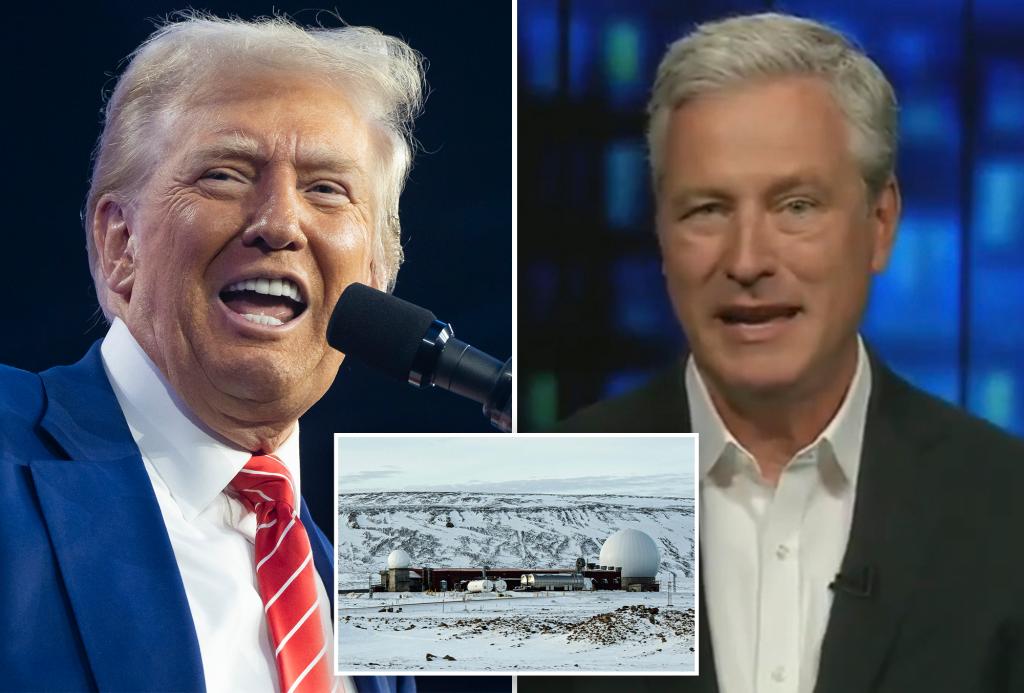Greenland’s strategic importance has been thrust into the spotlight, with former US National Security Adviser Robert O’Brien emphasizing its critical role in the evolving geopolitical landscape. Situated between the Arctic and North America, Greenland, the world’s largest island, possesses significant untapped resources and is increasingly viewed as a potential maritime gateway. O’Brien argues that Denmark, Greenland’s current governing authority, must bolster its defense capabilities on the island to counter growing Russian and Chinese influence in the Arctic region. He suggests several options for Denmark: invest in military infrastructure and personnel deployment on the island, contribute financially to US military presence there, or even consider selling Greenland to the US. This latter proposition, originally championed by former President Trump, sparked controversy but underscores the strategic value attributed to the island.
O’Brien’s pronouncements reflect a broader concern about the Arctic becoming a crucial battleground in the future. As climate change melts Arctic ice, new navigable waterways are opening up, potentially shortening shipping routes and offering access to untapped resources. This has attracted the attention of major powers, including Russia and China, both of whom are actively expanding their presence in the region. O’Brien argues that Greenland’s location makes it a vital linchpin in this emerging Arctic dynamic, and its defense is essential for US national security. He criticizes Denmark’s current defense efforts, particularly the recent announcement of deploying dog sled teams, as inadequate for the scale of the challenge. He advocates for a robust military presence, comparable to NATO deployments in Eastern Europe, emphasizing the island’s strategic importance as a “highway” connecting the Arctic to North America.
The historical context of US interest in Greenland further complicates the issue. Dating back to the 19th century, the US has expressed interest in acquiring the island, recognizing its strategic location. Trump’s renewed push for purchasing Greenland during his first term reignited the debate and sparked strong reactions from Denmark, which affirmed Greenland’s non-negotiable status. However, O’Brien’s insistence on Denmark significantly increasing its defense spending or ceding control of Greenland to the US underscores the heightened strategic importance attached to the island within the current geopolitical climate.
The discussion surrounding Greenland’s future is intertwined with a broader conversation about strategic waterways and maritime control. O’Brien also raised concerns about the Panama Canal, another vital maritime passage currently controlled by Panama. He voiced concerns about increasing Chinese influence in the canal zone, specifically referencing the Chinese ownership of ports at either end of the canal. O’Brien’s anxieties are fueled by rising fees for American ships using the canal and by what he sees as a potential violation of the canal’s neutrality agreement. He even suggested the possibility of the US reclaiming control of the canal if Panama doesn’t address these concerns, mirroring the stance taken toward Greenland.
These concerns about Greenland and the Panama Canal reflect a wider apprehension about China’s growing global influence and its strategic ambitions. Both locations are crucial maritime chokepoints, and any potential shift in control could significantly impact global trade and naval power dynamics. O’Brien’s statements articulate a view that sees China’s increasing presence in these strategic areas as a direct challenge to US interests, necessitating a robust response, even if that means challenging existing treaties and agreements.
In essence, the debate surrounding Greenland’s defense and the Panama Canal highlights the evolving nature of geopolitical competition in the 21st century. As the Arctic becomes more accessible and resource-rich, its strategic importance intensifies, drawing major powers into a new arena of competition. O’Brien’s pronouncements represent a perspective that prioritizes securing strategic assets and maintaining US dominance in key global locations. Whether through increased Danish investment in Greenland’s defense, a sale of the island, or a potential reclamation of the Panama Canal, these discussions reflect the growing tensions and shifting alliances shaping the future global order. The future of Greenland, therefore, is not merely a matter of territorial control but a reflection of a larger power struggle playing out on the global stage.










